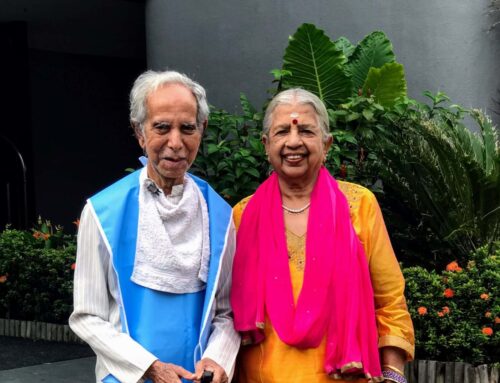US and China must forge mutual trust to end currency war
It was at the Expo 2010 Shanghai that I encountered Song Hongbing’s bookThe Currency War. I was with a few Chinese acquaintances, introduced to me by mutual friends because they had access to the expo.
Busloads of Chinese tourists were everywhere, led by loudspeaker-toting guides. People standing in the long lines that snaked around the hot pavilions created by countries including the UAE, UK, US, France, Canada and Denmark, had to wait for up to five hours to gain entry.
For some reason, the UAE’s pavilion was known by the locals as the Wave, even though it is actually modelled on undulating sand dunes. My guide explained that it had to do with the Chinese penchant for auspicious sounding words like “double happiness” and “joy luck”.
Tourists from the Anhui and Sichuan provinces particularly admired the reddish-gold roof. My own favourite was the UK pavilion, which looked like a cross between a blob and a porcupine.
The Chinese pavilion, naturally, towered above everything else although it was pretty much impossible to get inside. The only way to bypass the queues was to weasel your way into the VIP lounges, beg and plead using every press pass you could procure.
The Four Seasons where I stayed had room rates priced along with tickets to the expo. Every hotel in Shanghai had bumped up rates and yet ran at full capacity. Last week at least, it felt like the city was the centre of the world.
Just as the Olympics were Beijing’s “coming out” moment, the expo, which ends this month, is Shanghai’s.
The famous Bund area in central Shanghai was closed for almost two years to get it ready for the expo. That is like closing Piccadilly, Fifth Avenue, the Champs Elysees – or Mahatma Gandhi Road in my own city. There, you don’t just shut downtown for a couple of years to dig a tunnel, widen roads and move a lighthouse.
But China can do this. In the today’s world, it seems China can do anything. As my new Chinese friends were in finance, I brought up the currency situation. Why did Guido Mantega, Brazil’s finance minister, have to go and say it, I asked, thereby exacerbating an already tense situation.
When the Chinese raised their eyebrows, I elaborated. Wasn’t it Mr Mantega who said the world was in a “currency war” last month?
Oh, no, said my friends. Mr Mantega didn’t coin that phrase. A Chinese writer did. And then one of the gentlemen, who I will call Mr Chen, pulled out Hongbing’s book. The writing was in Chinese but the cover had an English subtitle that clearly read The Currency War.
Mr Chen needed to make recommendations to his bosses about the worsening currency situation and was looking for options. Between you and me, he said, China needs to find a way out without losing face.
Naturally, I was interested. What was the way out, I asked Mr Chen, who looked thoughtful. Clearly, China is being made a scapegoat, he said finally. Look around the world. Colombia, Israel, Switzerland, Japan – lots of countries are devaluating their currencies, so much so that even western publications are calling it competitive devaluation. Then why is China being targeted?
It is clear, Mr Chen continued in the measured tones of a bureaucrat, that the US has mismanaged its economy. The infallible Alan Greenspan, as some seem to think of him, turned out to have clay feet and his successors are no better. Rather than fixing its economic woes, the US prefers to point fingers at China, Mr Chen said.
The US government, at least for now, appears to be backing off. Last week, the US Treasury department, after issuing ultimatums and threats, decided to postpone its report on whether China is manipulating the yuan.
Jon Huntsman, the US ambassador to China who is a fluent Mandarin speaker and an expert on the country, said the aggressive stance by the US was driven equally by domestic politics as global trade worries.
In a town hall meeting that was broadcast in Beijing, Mr Huntsman said US pressure on China was partly driven by the upcoming mid-term elections in November.
Here is my own take on the situation: the escalating currency wars are a symptom of China’s increasing dominance on the world stage.
The problem is the US is unwilling to accept China’s self-confidence and China has not learned to negotiate gracefully. The watching world, for now, is still coming to terms with the Chinese superpower and its way of doing things.
The US has to learn that it cannot play hardball with China and expect this old civilisation but relatively new country to back down. China has to learn that being an economic superpower is different from being a statesman. Being a statesman involves wisdom, temperance and tone.
Ancient China espoused this culture of humility. Modern China would do well to relearn its lessons.
By the same token, the West cannot browbeat a country as diverse and different as China and simply expect the Chinese government to fall into line. It should approach China with respect rather than distrust; it should learn to appreciate the fundamental differences between eastern and western values.
As Mr Huntsman said, the US and China must be able to reach “a cruising altitude of mutual respect and equality”.
Shoba Narayan is a Bangalore-based journalist and the author of Monsoon Diary




Leave A Comment